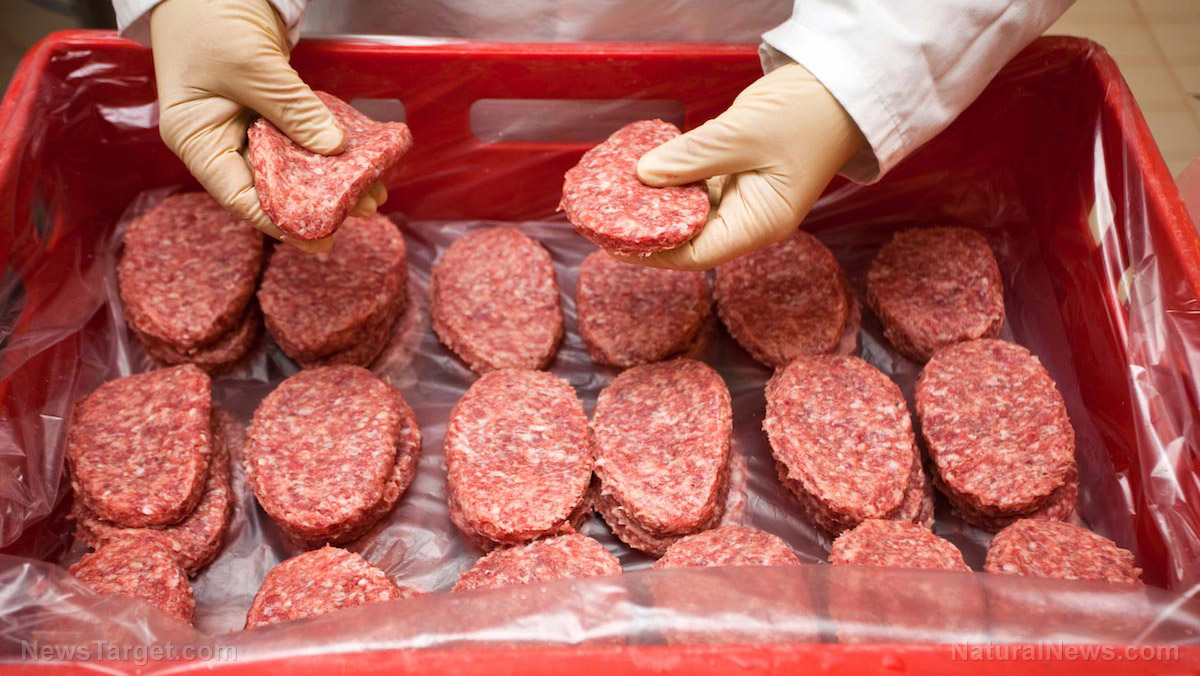 Parler
Parler Gab
Gab
The fad wanes – people are eating less fake meat
In a research note, Bloomberg intelligence analysts Jennifer Bartashus and Jibril Lawar wrote that the "love affair" of consumers with Beyond Meat's pricey meat substitutes is waning after an initial surge of interest when introduced to the company's flagship Beyond Burger, designed to look, cook and taste like a traditional beef burger – "burgers that appear to bleed" and imitations of meatballs and sausages. Rising prices are pushing consumers to look for cheaper alternatives while higher costs are eating away at profits. Analysts told Reuters that Beyond Meat does not have the room to raise the prices of its faux meat products as it is still trying to win consumers to its plant-based protein. Last year, Beyond Meat sales slid six percent in the United Kingdom. Earlier this year, administrators were called in by vegan specialists, including Meatless Farms of Leeds and Lincolnshire-based Plant & Bean, which supplies companies including Quorn and Tesco's Wicked Kitchen, as they battled lackluster sales and steep cost increases. According to market research firm Mintel, the sales of fake meats in the U.K. are expected to fall or flatline again this year as shoppers have turned to cheaper proteins, including processed meat and traditional vegan or vegetarian options, such as beans, chickpeas and lentils, to save them money. (Related: Fake meat companies are failing as consumers abandon processed plant-based alternatives to real meat.) Enthusiasm has also been dampened by recent investigations into the health impacts of the highly processed nature of some fake meats. "This change in perception is not without encouragement from interest groups who have succeeded in seeding doubt and fear around the ingredients and process used to create our and other plant-based meats," said Beyond Meat CEO Ethan Brown Beyond Meat, which has co-developed McDonald’s McPlant vegan burger, said it had been hit by "softer demand in the plant-based meat category, high inflation, rising interest rates and ongoing concerns about the likelihood of a recession." The U.S. trial run of the McPlant burger was canceled last August, but it is still on sale in the U.K. and Ireland. In the US, Business Insider reported that "sales of Beyond Meat products to restaurants, which make up 25.8 percent of its U.S. fourth-quarter sales, took the biggest hit – falling 30 percent year-over-year for the fourth quarter. Watch this video about Italy banning fake meat. This video is from the Alex Hammer channel on Brighteon.com.More related stories:
Bill Gates-backed fake meat companies on the verge of financial collapse. Fake meat firms collapsing due to lower sales, anti-woke backlash. FDA declares lab-grown chicken 'safe to eat' – but scientists, food safety advocates have questions. Sources include: Bloomberg.com TheGuardian.com BusinessInsider.com Brighteon.comMoody’s downgrades U.S. credit outlook from “stable” to “negative” amid political drama
By Cassie B. // Share
Sudden local bank closures in San Francisco area surprise residents
By Zoey Sky // Share
Credit card DEBT has SOARED, thanks to BIDENFLATION
By Kevin Hughes // Share
Cocoa prices rise to highest level in 45 years as poor weather diminishes outlook for harvests
By Arsenio Toledo // Share
Governments continue to obscure COVID-19 vaccine data amid rising concerns over excess deaths
By patricklewis // Share
Tech giant Microsoft backs EXTINCTION with its support of carbon capture programs
By ramontomeydw // Share
Germany to resume arms exports to Israel despite repeated ceasefire violations
By isabelle // Share










